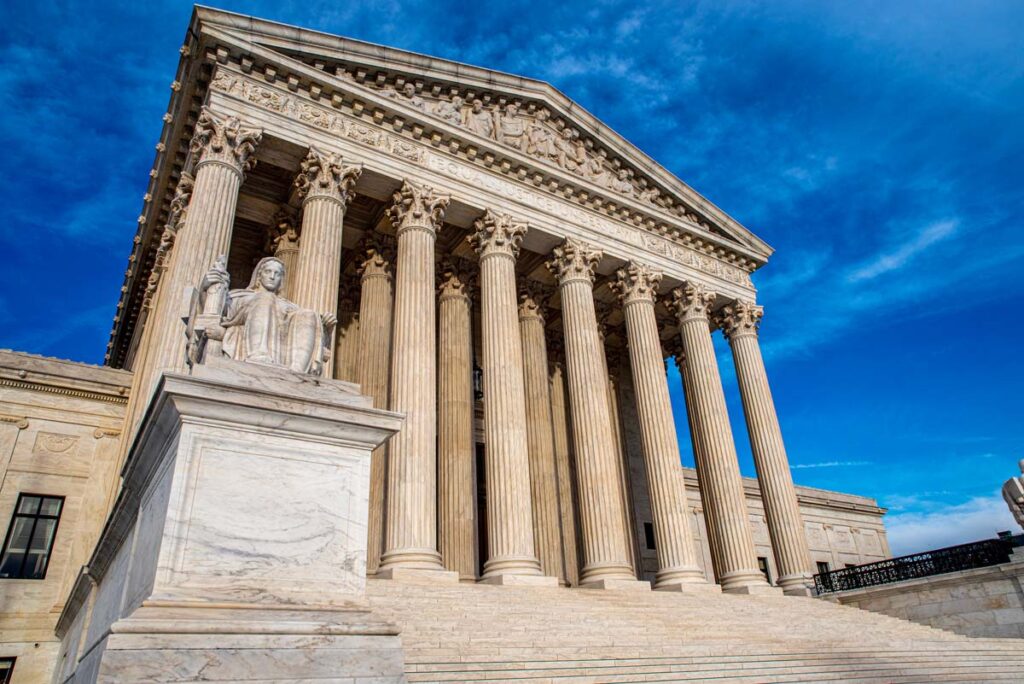
Supreme Court foreign profit taxes case overview:
- Who: The Supreme Court heard oral arguments in a case brought by petitioners Charles and Kathleen Moore, owners of a 13% stake in the Indian corporation KisanKraft Machine Tools Private Limited.
- Why: The Moores argue a mandatory repatriation tax they are required to pay under the 2017 Tax Cuts and Jobs Act is unconstitutional.
- Where: The case is in front of the Supreme Court.
The Supreme Court heard oral arguments for a case focused on a provision of the 2017 Tax Cuts and Jobs Act (TCJA) that requires companies to pay taxes on foreign profits that had previously been untaxed.
Petitioners Charles and Kathleen Moore, brought the case, arguing a mandatory repatriation tax they had to pay under the TCJA is unconstitutional, Forbes reports.
The Moores, who own a 13% stake in the Indian corporation KisanKraft Machine Tools Private Limited, had reportedly not paid taxes on their earnings prior to the TCJA due to a previous tax law that allowed income earned abroad to remain deferred until it was repatriated.
Under the TCJA, the Moores, who had never before claimed their earnings, are required to pay back taxes at a 15.5% rate all the way back to their original investment, leading to a tax bill of $14,729, according to Forbes. The Moores have now reportedly sued for a refund.
Petitioners argue mandatory repatriation tax provision of TCJA unconstitutional
The Moores reportedly argue the mandatory repatriation tax provision of the TCJA is not constitutional, claiming it violates apportionment requirements because it allegedly taxes them on ownership of personal property — in this case, their KisanKraft shares —rather than realized or received income, according to Forbes.
The petitioners also argue a lower court’s decision clashes with past determinations that the 16th Amendment apportionment exemptions are limited to taxes on realized gains, Forbes reports.
The Moores also reportedly hinted at a suggested wealth tax currently touted by the Biden administration and Congress members as another example of an unconstitutional tax on unrealized gains.
In other Supreme Court-related news, the nation’s highest court released a code of conduct for the first time in its 234-year history last month after ethical issues regarding the conduct of some of the justices were raised.
Do you believe the mandatory repatriation tax provision of the 2017 Tax Cuts and Jobs Act is unconstitutional? Let us know in the comments.
Don’t Miss Out!
Check out our list of Class Action Lawsuits and Class Action Settlements you may qualify to join!
Read About More Class Action Lawsuits & Class Action Settlements:














